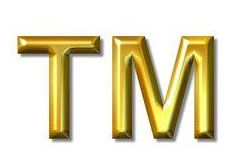At a wedding recently, I learned an acquaintance was a Quaker. She graciously explained the main tenets of Quakerism, as honesty, integrity and purity, and referred to the brand “Quaker Oats” as epitomizing honesty and purity.
Always the trademark lawyer, my mind immediately followed a line of inquiry as to whether the Quaker Oats brand was in any way associated with the Quaker church. Upon learning that there was no connection, I asked: Isn’t the inclusion of “Quaker” in the trademark deceptively misdescriptive?
But first some background:
The first “Quaker Oats” trademark was registered in 1877:
QUAKER OATS 1 POUND QUAKER OATS MANUFACTURED BY THE AMERICAN CEREAL CO. ADDRESS CHICAGO U.S.A. USE ONLY QUAKER BRAND ROLLED OATS
But the Trademark Act prohibits registration of designations that are deceptively misdescriptive. That is, if a term conveys an immediate idea of an ingredient, quality, characteristic, function, or feature of the goods or service, but the idea is false, although plausible, then the term may be considered deceptively misdescriptive and thus unregistrable.
For example, the following terms have been considered deceptively misdescriptive: CAMEO for jewelry; G.I. for gun cleaning products; TITANIUM for recreational vehicles; CERTIFIED HEARING AID AUDIOLOGIST since it implies the user of the mark is a certified audiologist.
Oddly, the Trademark Act does not prohibit the registration of misdescriptive terms unless they are deceptively misdescriptive, that is, the relevant consumers who will encounter the mark must be likely to believe the misrepresentation.
The test for deceptive misdescriptiveness has several prongs:
1) Does the matter sought to be registered misdescribe the goods?
2) If so, is anyone is likely to believe the misrepresentation?
3) Would the misrepresentation materially affect the decision to purchase the goods?
As to the mark LOVEE LAMB for seat covers that were not made of lambskin, evidence that seat covers can be and are made from lambskin supported that the mark was deceptively misdescriptive. Similarly, the mark CEDAR RIDGE conveyed the impression of authentic cedar. In these cases, the marks were not merely misdescriptive, they were deceptively misdescriptive:, the mark is material to the decision to purchase the goods or use the services. On the other hand, LIQUID CRAYON was held not to be deceptively misdescriptive of coloring kits or marker, as the representation that the crayons were ‘liquid’ was not material.
Now back to Quaker Oats. The company says “The ‘Quaker man’ is not an actual person. His image is that of a man dressed in the Quaker garb, chosen because the Quaker faith projected the values of honesty, integrity, purity and strength.” FYI: The Quaker man is known within the company as “Larry.”
Though the Quaker Oats Company admittedly has no formal ties with the Quakers, the mark was adopted in the 1800’s because it was suggestive: Quaker businesspeople were known for their honesty. “
The name was chosen when Quaker Mill partner Henry Seymour found an encyclopedia article on Quakers, who were described as having integrity, honesty, and purity, which he thought provided an appropriate identity for his company’s oat product.”
So is Quaker Oats merely deceptively misdescriptive? That depends on whether anyone is likely to believe the misrepresentation and/or whether the misrepresentation would materially affect the decision to purchase the goods.
Sources: United States Patent and Trademark Office, quakeroats.com site (see http://www.quakeroats.com/about-quaker-oats/content/quaker-history.aspx), and official Wikipedia article at http://en.m.wikipedia.org/wiki/Quaker_Oats_Company#section_2.
